The “New Healthful”: 7 Trends
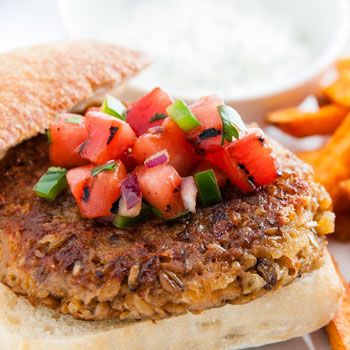 The “healthful” food label gets taken to new levels through nationwide cooperation, resulting in up-and-coming heirloom whole-grain breads and leafy breakfast salads and the well-established veggie-burger revolution.
The “healthful” food label gets taken to new levels through nationwide cooperation, resulting in up-and-coming heirloom whole-grain breads and leafy breakfast salads and the well-established veggie-burger revolution.
A health-food renaissance is upon us, as the notion of “healthful” is being redefined nationwide, according to the recently released “The New Healthful: Culinary Trend Mapping Report” by market-research publisher Packaged Facts and San Francisco-based strategic food-and-beverage agency CCD Innovation.
As part of our country’s renewed emphasis on promoting good health comes the focus on the presence of beneficial nutrients and the use of inherently nutritious foods, as opposed to simply eliminating or avoiding certain ingredients that might negatively affect health when over-consumed. As discussed in the report, the New Healthful is also about growth of new distribution outlets, new places where healthful foods can be found. As these increase, the existence of healthful food-and-beverage options alongside more indulgent ones will become an everyday occurrence.

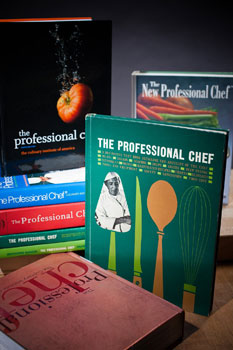 The Professional Chef continues to change the world of cooking.
The Professional Chef continues to change the world of cooking.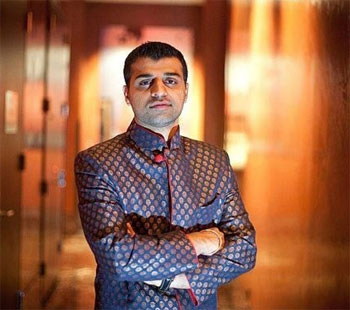 Moti Mahal Delux, a legendary high-end restaurant chain that is responsible for the invention of tandoori chicken, operates more than 100 locations throughout India, Nepal and London. This year, chef Gaurav Anand, a native of Punjab, India, has opened the restaurant’s first U.S. location, bringing the flavorful cuisine of the Mughal Empire to Manhattan’s Upper East Side.
Moti Mahal Delux, a legendary high-end restaurant chain that is responsible for the invention of tandoori chicken, operates more than 100 locations throughout India, Nepal and London. This year, chef Gaurav Anand, a native of Punjab, India, has opened the restaurant’s first U.S. location, bringing the flavorful cuisine of the Mughal Empire to Manhattan’s Upper East Side. Good practices of social-media conversation honor five key principles just as they do within teams and in kitchens.
Good practices of social-media conversation honor five key principles just as they do within teams and in kitchens. Easy, free and completely impartial, an assignment board guarantees that everyone shares equally in the assignments over a few days. Say these educators, the system is beautiful in its simplicity.
Easy, free and completely impartial, an assignment board guarantees that everyone shares equally in the assignments over a few days. Say these educators, the system is beautiful in its simplicity.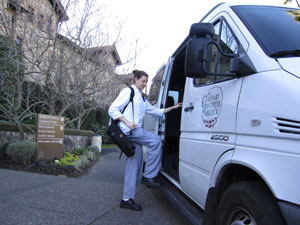 Produced for only $0.88 a gallon to operate the college’s vehicles, the savings from converting cooking oil to fuel rather than purchasing regular diesel is huge.
Produced for only $0.88 a gallon to operate the college’s vehicles, the savings from converting cooking oil to fuel rather than purchasing regular diesel is huge.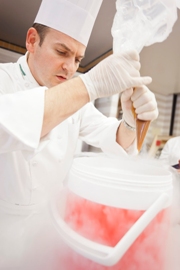 The Culinary Institute of America (CIA) is launching a new major in Culinary Science beginning in February 2013—one of a series of new academic programs in bachelor’s-degree studies at the college. The programs will advance the culinary profession and position CIA graduates for career success in the dynamically evolving foodservice industry.
The Culinary Institute of America (CIA) is launching a new major in Culinary Science beginning in February 2013—one of a series of new academic programs in bachelor’s-degree studies at the college. The programs will advance the culinary profession and position CIA graduates for career success in the dynamically evolving foodservice industry.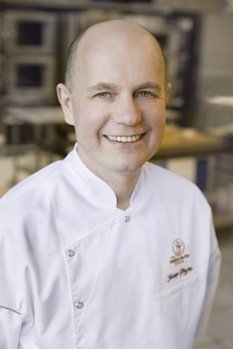 Chef Jacquy Pfeiffer, cofounder of The French Pastry School of Kennedy-King College at City Colleges of Chicago, has been named many things in his exceptional career in pastry: Pastry Chef of the Year at the 2004 World Pastry Forum; Celebrity Pastry Chef of the Year at the 2005 Jean Banchet Awards; and a Kings of Pastry in the 2009 documentary, “Kings of Pastry,” to name a few.
Chef Jacquy Pfeiffer, cofounder of The French Pastry School of Kennedy-King College at City Colleges of Chicago, has been named many things in his exceptional career in pastry: Pastry Chef of the Year at the 2004 World Pastry Forum; Celebrity Pastry Chef of the Year at the 2005 Jean Banchet Awards; and a Kings of Pastry in the 2009 documentary, “Kings of Pastry,” to name a few.